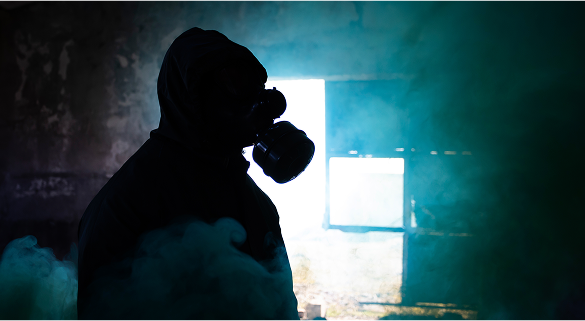Asbestos Exposure by State

Asbestos is prevalent across the United States. Exposure to this harmful substance can lead to serious dangers, including an increased risk of certain cancers. If you or a loved one has received a recent diagnosis indicating asbestos exposure, call our law office at 618-659-9833 to determine whether you have a case.
- Dozens of workers, including those in the shipyard, construction, and factory labor, faced significant risks of asbestos exposure from insulation, machinery, and building materials.
- Several states report the highest mesothelioma death rates, due to historic industrial activities such as shipbuilding and oil refining.
- Every U.S. region has key industries, such as shipbuilding in New England, steel and automobile production in the Midwest, and oil refining in the South, that relied on asbestos, leading to long-term exposure risks.
- Victims of asbestos-related illnesses may qualify for compensation. At The Gori Law Firm, legal support is available to help affected workers and families seek justice for occupational exposure.
Asbestos Exposure in the U.S.
Specific job sites in the United States place workers at a higher risk of asbestos exposure, including the following:
- Auto Mechanics
- Grinders
- Plasterers
- Electricians
- Merchant Marines
- U.S. Navy Personnel
Top 10 States for Asbestos-Related Deaths
While asbestos exposure that leads to death can take place in any state, several areas are especially at risk.
Maine – 22.06 Deaths Per Million Population
Maine’s high mesothelioma rate is linked to its historic shipbuilding industry, particularly at the Bath Iron Works and Portsmouth Naval Shipyard. Additionally, paper mills and textile plants heavily relied on asbestos insulation and machinery.
Washington – 20.10 Deaths Per Million Population
Washington’s exposure risks stem largely from naval shipyards, such as those in Puget Sound, and the heavy use of asbestos in the aerospace, construction, and industrial sectors. Veterans and dockworkers remain among the most affected.
Wyoming – 22.2 Deaths Per Million Population
Wyoming’s energy sector, especially oil refineries and natural gas plants, has contributed to significant asbestos exposure. Industrial job sites and older infrastructure have played a key role in mesothelioma cases.
West Virginia – 21.0 Deaths Per Million Population
Coal mining, power plants, and chemical manufacturing have long dominated West Virginia’s economy. Asbestos was extensively used in insulating equipment and piping, putting workers at risk across multiple blue-collar industries.
Pennsylvania – 20.8 Deaths Per Million Population
Known for its history of steel production, Pennsylvania has a long history of asbestos use in steel mills, railroads, and shipyards. The legacy of industrial manufacturing continues to drive the state’s high mesothelioma death rate.
New Jersey – 20.2 Deaths Per Million Population
New Jersey’s dense industrial industry, including oil refineries, chemical plants, and shipping ports, created substantial asbestos exposure risks. The state also had multiple asbestos product manufacturers that impacted both workers and nearby residents.
California – 20.0 Deaths Per Million Population
California’s shipbuilding, construction, and aerospace industries, along with numerous military bases, contributed to heavy asbestos exposure. The state’s size and veteran population also play a role in the increased number of mesothelioma cases.
Michigan – 19.8 Deaths Per Million Population
Michigan’s automotive industry used asbestos in brakes, clutches, and insulation, exposing factory workers and mechanics to the hazardous material. Shipyards around the Great Lakes also played a role in the state’s mesothelioma incidence.
Ohio – 19.5 Deaths Per Million Population
Ohio has a history of asbestos use in its steel mills, power plants, and manufacturing sites. Many older schools, factories, and refineries have also added to the significant occupational exposure.
Illinois – 19.2 Deaths Per Million Population
Illinois’s high rate of mesothelioma from asbestos exposure is attributed to the steel and railroad industries, as well as extensive urban construction projects. Workers in the Chicago area, particularly those in older buildings and industrial sites, faced significant asbestos risks for decades.
Asbestos Exposure by Region
Below is information on region-specific asbestos exposure, as well as the occupations and industries most at risk in that particular region.

Asbestos Exposure in New England
Shipbuilding, textile manufacturing, and paper mills were major economic drivers in New England—industries where asbestos was widely used in machinery, insulation, and building materials. Many older buildings and industrial facilities continue to pose exposure risks today.

Asbestos Exposure in the Mid-Atlantic
The Mid-Atlantic region was historically a center of heavy industry, shipping, and military activity. Steel mills, power plants, shipyards, and densely populated urban areas all contributed to the widespread use of asbestos.

Asbestos Exposure in the South
From shipyards to oil refineries and power plants, the South’s postwar industries depended heavily on asbestos. Many rural and low-income communities continue to face challenges related to occupational and environmental exposure.

Asbestos Exposure in the Midwest
The Midwest’s industrial backbone, such as steel, automotive, railroads, and agriculture, relied on asbestos for decades. Workers in factories, power plants, and refineries were often exposed to airborne asbestos fibers.

Asbestos Exposure in the Southwest
Oil refineries, construction sites, and military bases are well-known sources of asbestos exposure in the Southwest. Additionally, dry climates can increase the risk of airborne asbestos from deteriorating older buildings or natural asbestos deposits.

Asbestos Exposure in the Western United States
The shipbuilding, mining, construction, and aerospace industries significantly contributed to the use of asbestos in the West. Additionally, military installations and naval bases in California, Washington, and Hawaii heightened long-term exposure risks.
You May Be Entitled to Compensation
Regardless of the state or region you live in, you deserve compensation when asbestos exposure leads to deadly consequences. Our compassionate attorneys at The Gori Law Firm know how to navigate these complex cases. We can be by your side from the start to the finish of your claim, seeking financial recovery for you and your family. Contact us today to schedule a free, confidential consultation.


